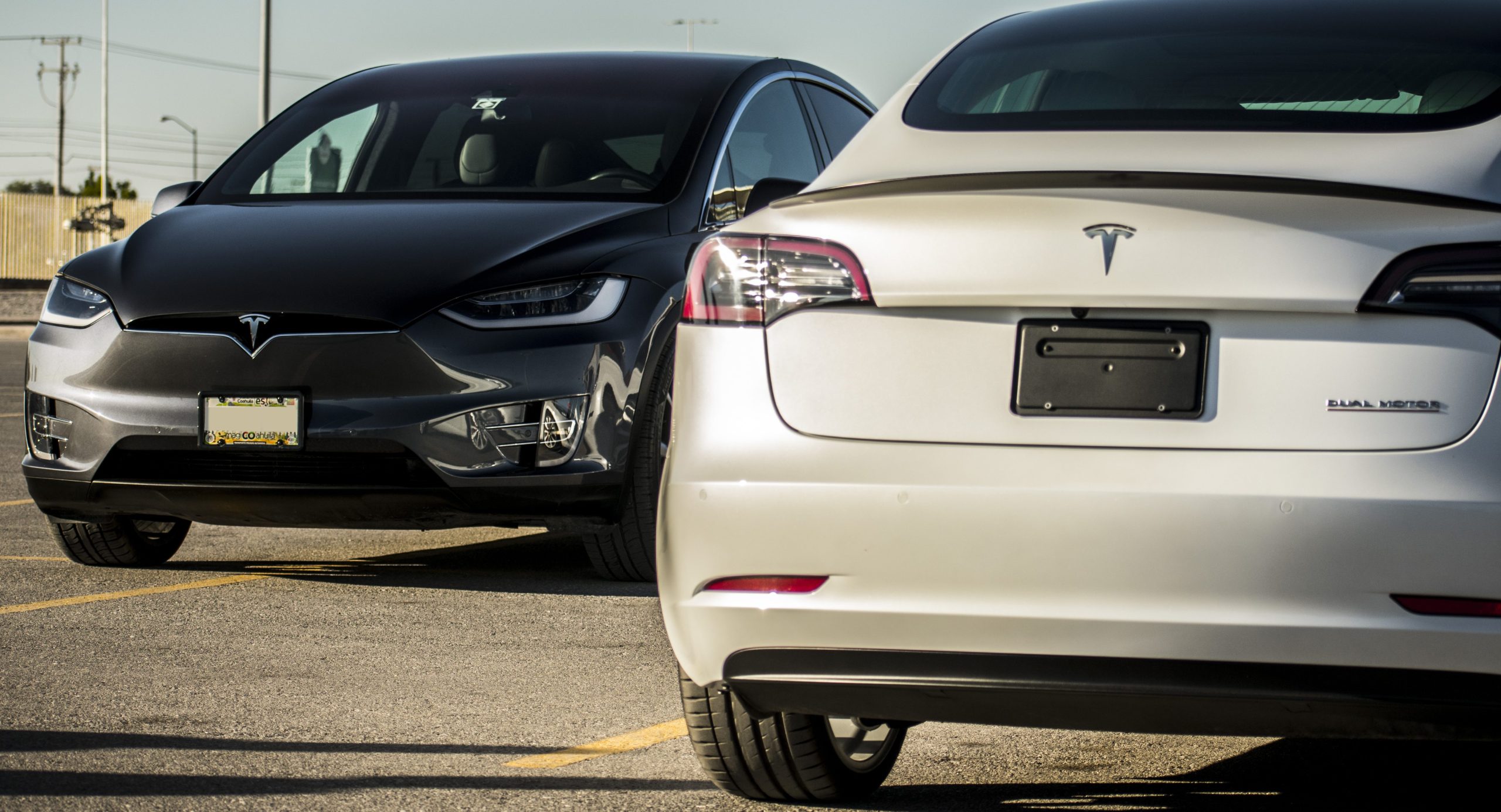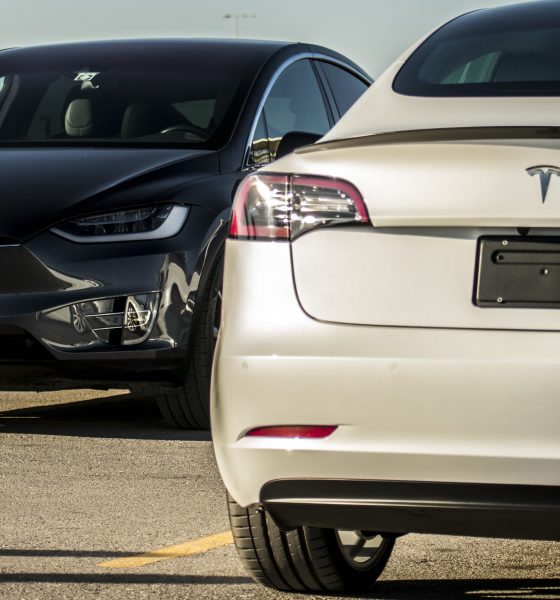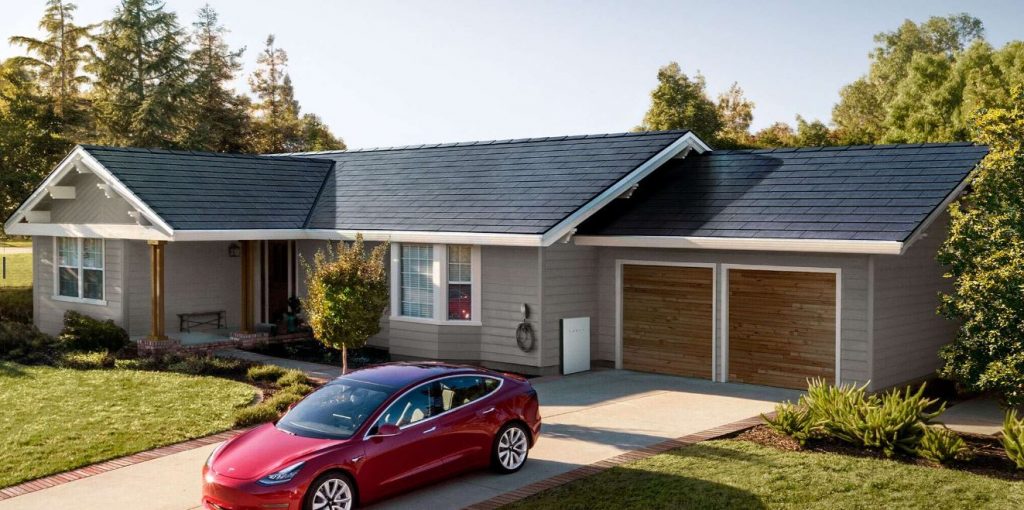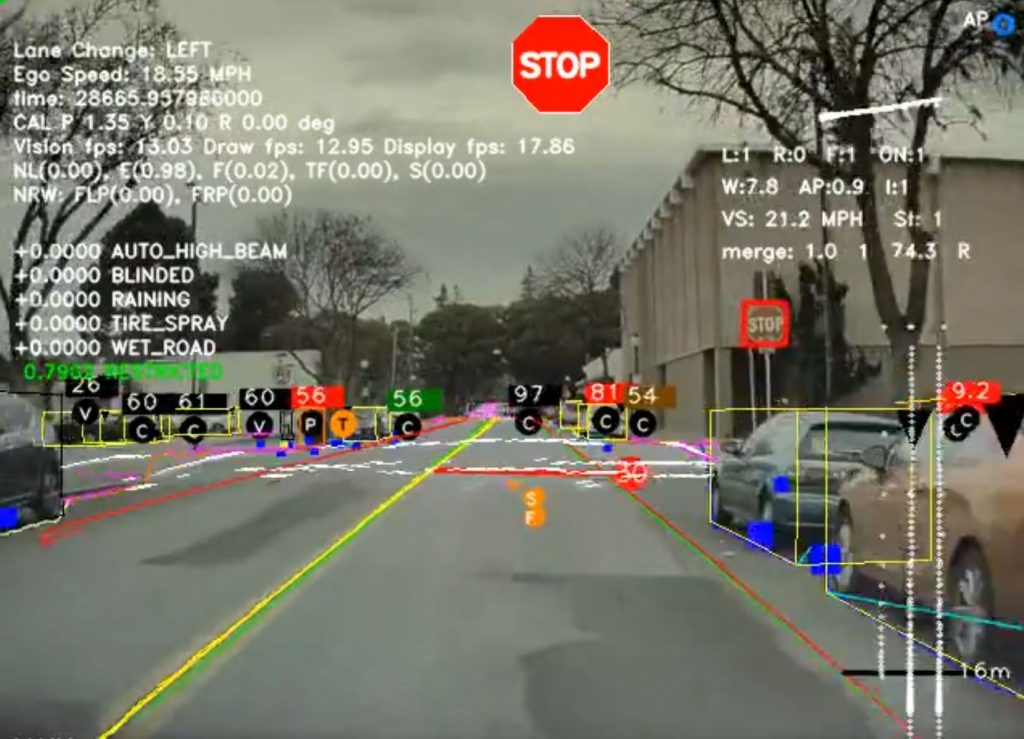

Investor's Corner
Tesla's battle lines are drawn with retail investors on one side and Wall St on another
There are very few stocks in the market that inspire such volatility as American electric car maker Tesla (NASDAQ:TSLA). The company has been on a tear lately, propelled by positive Q4 2019 results and emphasized by an ever-growing number of ardent supporters online. Yet amidst these victories, it appears that Tesla has finally reached a point where the battle lines are now being drawn between the company’s supporters, particularly its retail investors and analysts from Wall Street.
Tesla is a tricky company to evaluate, mainly since it covers several industries. The electric car maker is currently the second-largest automaker in the world by market value, though it only produces and delivers a fraction of the vehicles that veteran car companies sell every year. In 2019, Tesla sold just over 367,000 vehicles. Volkswagen, the third-largest automaker according to market cap, sold over 6 million units.
But the Tesla story is never just about the company’s electric cars. A look at Tesla’s mission shows that the company’s goals are bigger than just selling cars and making money doing so. Tesla aims to accelerate the world’s transition to sustainability, and making electric cars that are better than petrol-powered vehicles is but a crucial part of the puzzle. This also means that there are dimensions to the company that lies far beyond that of its electric car business.

It is this last point where the divergence is most evident between Tesla’s supporters and Wall Street analysts. Tesla shareholders, many of whom actually own the company’s products, are intimately familiar with CEO Elon Musk’s overall plans and goals, as well as the scope of the company’s numerous business. Very few of those who own a Model 3, for example, are not aware that Tesla also makes solar roof tiles, or residential batteries like Powerwalls, or grid-scale batteries like Megapacks for that matter.
Unfortunately, a good number of analysts who cover TSLA stock seem to be stuck under the impression that the company is an automaker, full stop. A look at analysts and critics who frequent media outlets such as CNBC shows that very few actually consider the potential, or even recognize the existence of Tesla Energy, a business that legendary billionaire Ron Baron believes could be just as big as the company’s electric car business. Even fewer acknowledge the value of Tesla’s Autopilot data, which are gathered from real-world miles.
This could be seen in Wall Street’s estimates on Waymo, a Google-based company aimed at developing and deploying a self-driving service. Morgan Stanley analyst Brian Nowak wrote in a note to clients last year that the startup is worth $105 billion because of its self-driving technology, and that’s a conservative estimate. Before last year’s update, Nowak valued Waymo at a far more optimistic $175 billion. In comparison, Tesla’s current valuation, as of last Friday’s close, stood at $134 billion. That amount included the company’s auto business, its energy business, and its autonomous driving tech.

As is the nature of Tesla stock, the company’s full potential is usually acknowledged and considered only by the company’s most ardent supporters on the Street. So for now, there is very little chance that the perception of Tesla between its retail supporters and traditional analysts will converge anytime soon. This divergence became a focal point in the company’s recent Q4 2019 earnings call, when Elon Musk admitted that retail investors might have a better grasp of the company’s plans than conventional Wall Street analysts.
“I do think that a lot of retail investors actually have deeper and more accurate insights than many of the big institutional investors and certainly better insight than many of the analysts. It seems like if people really looked at some of the smart retail investor analysts and what some of the smart smaller retail investors predicted about the future of Tesla, you would probably get the highest accuracy and remarkable insight from some of those predictions,” Musk said.
Tesla will likely remain a polarizing company for years to come. That said, Tesla Energy’s ramp is upon the market already, and the company’s Solarglass Roof V3 are now being installed to a growing number of homes in the United States. Tesla’s Full Self-Driving system is also closing in on being feature-complete. Overall, it seems that it will only be a matter of time before the true potential of Tesla emerges, and when it does, one would have to deny a whole lot of the company to consider it just as an automaker.
Disclosure: I have no ownership in shares of TSLA and have no plans to initiate any positions within 72 hours.

Elon Musk
Tesla stock gets latest synopsis from Jim Cramer: ‘It’s actually a robotics company’
“Turns out it’s actually a robotics and Cybercab company, and I want to buy, buy, buy. Yes, Tesla’s the paper that turned into scissors in one session,” Cramer said.

Tesla stock (NASDAQ: TSLA) got its latest synopsis from Wall Street analyst Jim Cramer, who finally realized something that many fans of the company have known all along: it’s not a car company. Instead, it’s a robotics company.
In a recent note that was released after Tesla reported Earnings in late January, Cramer seemed to recognize that the underwhelming financials and overall performance of the automotive division were not representative of the current state of affairs.
Instead, we’re seeing a company transition itself away from its early identity, essentially evolving like a caterpillar into a butterfly.
The narrative of the Earnings Call was simple: We’re not a car company, at least not from a birds-eye view. We’re an AI and Robotics company, and we are transitioning to this quicker than most people realize.
Tesla stock gets another analysis from Jim Cramer, and investors will like it
Tesla’s Q4 Earnings Call featured plenty of analysis from CEO Elon Musk and others, and some of the more minor details of the call were even indicative of a company that is moving toward AI instead of its cars. For example, the Model S and Model X will be no more after Q2, as Musk said that they serve relatively no purpose for the future.
Instead, Tesla is shifting its focus to the vehicles catered for autonomy and its Robotaxi and self-driving efforts.
Cramer recognizes this:
“…we got results from Tesla, which actually beat numbers, but nobody cares about the numbers here, as electric vehicles are the past. And according to CEO Elon Musk, the future of this company comes down to Cybercabs and humanoid robots. Stock fell more than 3% the next day. That may be because their capital expenditures budget was higher than expected, or maybe people wanted more details from the new businesses. At this point, I think Musk acolytes might be more excited about SpaceX, which is planning to come public later this year.”
He continued, highlighting the company’s true transition away from vehicles to its Cybercab, Optimus, and AI ambitions:
“I know it’s hard to believe how quickly this market can change its attitude. Last night, I heard a disastrous car company speak. Turns out it’s actually a robotics and Cybercab company, and I want to buy, buy, buy. Yes, Tesla’s the paper that turned into scissors in one session. I didn’t like it as a car company. Boy, I love it as a Cybercab and humanoid robot juggernaut. Call me a buyer and give me five robots while I’m at it.”
Cramer’s narrative seems to fit that of the most bullish Tesla investors. Anyone who is labeled a “permabull” has been echoing a similar sentiment over the past several years: Tesla is not a car company any longer.
Instead, the true focus is on the future and the potential that AI and Robotics bring to the company. It is truly difficult to put Tesla shares in the same group as companies like Ford, General Motors, and others.
Tesla shares are down less than half a percent at the time of publishing, trading at $423.69.
Elon Musk
Tesla to a $100T market cap? Elon Musk’s response may shock you

There are a lot of Tesla bulls out there who have astronomical expectations for the company, especially as its arm of reach has gone well past automotive and energy and entered artificial intelligence and robotics.
However, some of the most bullish Tesla investors believe the company could become worth $100 trillion, and CEO Elon Musk does not believe that number is completely out of the question, even if it sounds almost ridiculous.
To put that number into perspective, the top ten most valuable companies in the world — NVIDIA, Apple, Alphabet, Microsoft, Amazon, TSMC, Meta, Saudi Aramco, Broadcom, and Tesla — are worth roughly $26 trillion.
Will Tesla join the fold? Predicting a triple merger with SpaceX and xAI
Cathie Wood of ARK Invest believes the number is reasonable considering Tesla’s long-reaching industry ambitions:
“…in the world of AI, what do you have to have to win? You have to have proprietary data, and think about all the proprietary data he has, different kinds of proprietary data. Tesla, the language of the road; Neuralink, multiomics data; nobody else has that data. X, nobody else has that data either. I could see $100 trillion. I think it’s going to happen because of convergence. I think Tesla is the leading candidate [for $100 trillion] for the reason I just said.”
Musk said late last year that all of his companies seem to be “heading toward convergence,” and it’s started to come to fruition. Tesla invested in xAI, as revealed in its Q4 Earnings Shareholder Deck, and SpaceX recently acquired xAI, marking the first step in the potential for a massive umbrella of companies under Musk’s watch.
SpaceX officially acquires xAI, merging rockets with AI expertise
Now that it is happening, it seems Musk is even more enthusiastic about a massive valuation that would swell to nearly four-times the value of the top ten most valuable companies in the world currently, as he said on X, the idea of a $100 trillion valuation is “not impossible.”
It’s not impossible
— Elon Musk (@elonmusk) February 6, 2026
Tesla is not just a car company. With its many projects, including the launch of Robotaxi, the progress of the Optimus robot, and its AI ambitions, it has the potential to continue gaining value at an accelerating rate.
Musk’s comments show his confidence in Tesla’s numerous projects, especially as some begin to mature and some head toward their initial stages.
Elon Musk
Tesla director pay lawsuit sees lawyer fees slashed by $100 million
The ruling leaves the case’s underlying settlement intact while significantly reducing what the plaintiffs’ attorneys will receive.

The Delaware Supreme Court has cut more than $100 million from a legal fee award tied to a shareholder lawsuit challenging compensation paid to Tesla directors between 2017 and 2020.
The ruling leaves the case’s underlying settlement intact while significantly reducing what the plaintiffs’ attorneys will receive.
Delaware Supreme Court trims legal fees
As noted in a Bloomberg Law report, the case targeted pay granted to Tesla directors, including CEO Elon Musk, Oracle founder Larry Ellison, Kimbal Musk, and Rupert Murdoch. The Delaware Chancery Court had awarded $176 million to the plaintiffs. Tesla’s board must also return stock options and forego years worth of pay.
As per Chief Justice Collins J. Seitz Jr. in an opinion for the Delaware Supreme Court’s full five-member panel, however, the decision of the Delaware Chancery Court to award $176 million to a pension fund’s law firm “erred by including in its financial benefit analysis the intrinsic value” of options being returned by Tesla’s board.
The justices then reduced the fee award from $176 million to $70.9 million. “As we measure it, $71 million reflects a reasonable fee for counsel’s efforts and does not result in a windfall,” Chief Justice Seitz wrote.
Other settlement terms still intact
The Supreme Court upheld the settlement itself, which requires Tesla’s board to return stock and options valued at up to $735 million and to forgo three years of additional compensation worth about $184 million.
Tesla argued during oral arguments that a fee award closer to $70 million would be appropriate. Interestingly enough, back in October, Justice Karen L. Valihura noted that the $176 award was $60 million more than the Delaware judiciary’s budget from the previous year. This was quite interesting as the case was “settled midstream.”
The lawsuit was brought by a pension fund on behalf of Tesla shareholders and focused exclusively on director pay during the 2017–2020 period. The case is separate from other high-profile compensation disputes involving Elon Musk.








